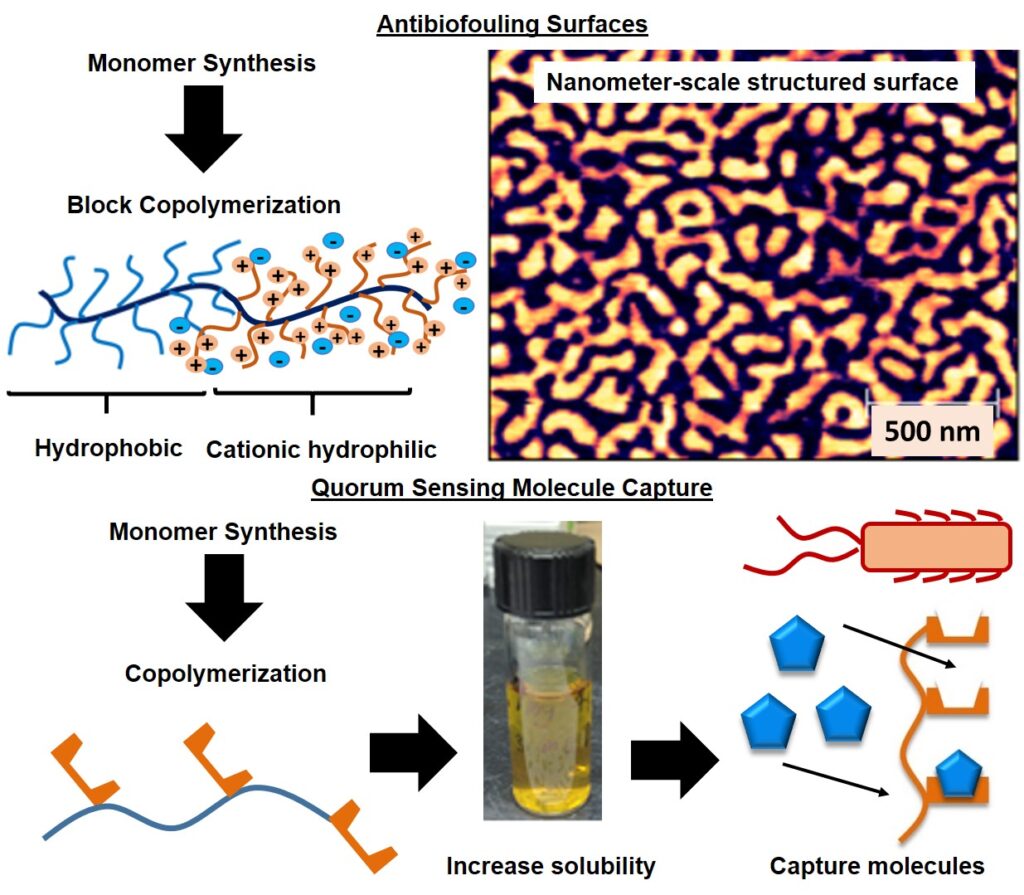Addressing Challenges with Bacteria
For systems like water filters, implanted medical devices, and marine infrastructure, the formation of bacterial biofilms can lead to serious complications. New coatings are needed to prevent biofilm formation. Additionally, new methods are needed to detect when bacteria are present.
Our group aims to improve current anti-biofouling technology by utilizing block copolymer phase separation and controlled polymer synthesis to create new polymers to combat bacteria. We also create new polymer systems that interact with molecules produced by bacteria.
We are currently researching:
New methods to synthesize polymers with complex molecular architectures.
Amphiphilic bottlebrush block copolymers as anti-fouling coatings.
Bioconjugate copolymers to detect bacterial presence.

Selected Publications
